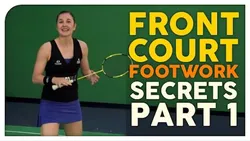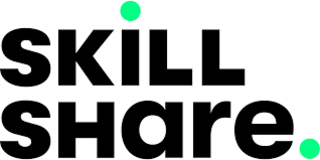
Storying the Self: (Re)Claiming our Voices 
This workshop invites participants to explore their lived experiences and identities, and to consider how race, gender, class, language, and ability shape their leadership and creative practices. Through creative exercises, participants will practice perspective-taking and listening to gain empathy and develop leadership skills for multicultural workplaces. ▼
ADVERTISEMENT
Course Feature
![]() Cost:
Cost:
Free
![]() Provider:
Provider:
Coursera
![]() Certificate:
Certificate:
Paid Certification
![]() Language:
Language:
English
![]() Start Date:
Start Date:
29th May, 2023
Course Overview
❗The content presented here is sourced directly from Coursera platform. For comprehensive course details, including enrollment information, simply click on the 'Go to class' link on our website.
Updated in [March 06th, 2023]
Storying the Self: (Re)Claiming our Voices is a course designed to help participants engage with their lived experiences and identities that have often been denied a public voice. Through this course, participants will explore the nuanced contexts of race, gender, class, language, and ability, and how these impact their position as a leader and creator. Participants will be encouraged to question what it means to reclaim their narrative of themselves and to engage with the strength of vulnerability as a leader and creator.
The course will begin with an introduction to the concept of storying the self, and how it can be used to reclaim our voices. Participants will then explore the various contexts of race, gender, class, language, and ability, and how these can shape our identities and experiences. Through a series of activities, participants will be encouraged to reflect on their own experiences and identities, and how these have been shaped by the various contexts.
In addition, participants will engage in a creative exercise to explore multiple perspectives on a past conflict. Through this exercise, participants will practice perspective-taking and listening, which can generate creative work and deepen leadership skills for empathy, listening, and engaging in multicultural workplaces.
At the end of the course, participants will have a better understanding of how to reclaim their narrative of themselves, and how to engage with the strength of vulnerability as a leader and creator. They will also have a better understanding of the various contexts of race, gender, class, language, and ability, and how these can shape our identities and experiences. Finally, participants will have the skills to practice perspective-taking and listening, which can generate creative work and deepen leadership skills for empathy, listening, and engaging in multicultural workplaces.
[Applications]
The application of this course can be seen in many different ways. Participants can use the skills and knowledge gained to become more aware of their own identities and how they interact with the world around them. They can also use the skills to become more effective leaders and creators, as they learn to take multiple perspectives into account and practice empathy and listening. Additionally, the course can be used to help participants better understand and navigate multicultural workplaces, as they learn to engage with different perspectives and create work that reflects their own unique identities.
[Career Paths]
1. Social Media Manager: Social media managers are responsible for creating and managing content for social media platforms. They must be able to create content that is engaging and resonates with their target audience. They must also be able to monitor and respond to comments and messages in a timely manner. As social media continues to grow in importance, the demand for social media managers is expected to increase.
2. Content Strategist: Content strategists are responsible for creating and managing content for websites, blogs, and other digital platforms. They must be able to create content that is engaging and resonates with their target audience. They must also be able to monitor and respond to comments and messages in a timely manner. As digital content continues to grow in importance, the demand for content strategists is expected to increase.
3. Digital Marketer: Digital marketers are responsible for creating and managing digital marketing campaigns. They must be able to create campaigns that are engaging and resonates with their target audience. They must also be able to monitor and respond to comments and messages in a timely manner. As digital marketing continues to grow in importance, the demand for digital marketers is expected to increase.
4. Community Manager: Community managers are responsible for creating and managing online communities. They must be able to create content that is engaging and resonates with their target audience. They must also be able to monitor and respond to comments and messages in a timely manner. As online communities continue to grow in importance, the demand for community managers is expected to increase.
[Education Paths]
1. Bachelor of Arts in Creative Writing: A Bachelor of Arts in Creative Writing is a degree program that focuses on the development of writing skills and the exploration of creative writing techniques. Students will learn how to craft stories, poems, and other forms of creative writing, as well as how to analyze and critique literature. This degree is becoming increasingly popular as more people are looking to pursue a career in creative writing.
2. Master of Arts in Creative Writing: A Master of Arts in Creative Writing is a degree program that focuses on the development of advanced writing skills and the exploration of creative writing techniques. Students will learn how to craft stories, poems, and other forms of creative writing, as well as how to analyze and critique literature. This degree is becoming increasingly popular as more people are looking to pursue a career in creative writing.
3. Doctor of Philosophy in Creative Writing: A Doctor of Philosophy in Creative Writing is a degree program that focuses on the development of advanced writing skills and the exploration of creative writing techniques. Students will learn how to craft stories, poems, and other forms of creative writing, as well as how to analyze and critique literature. This degree is becoming increasingly popular as more people are looking to pursue a career in creative writing.
4. Master of Fine Arts in Creative Writing: A Master of Fine Arts in Creative Writing is a degree program that focuses on the development of advanced writing skills and the exploration of creative writing techniques. Students will learn how to craft stories, poems, and other forms of creative writing, as well as how to analyze and critique literature. This degree is becoming increasingly popular as more people are looking to pursue a career in creative writing, and is becoming a more sought-after degree for those looking to pursue a career in the creative arts.
Pros & Cons

Interesting content

Thoughtprovoking

Rereadable.

Misleading length

No final project

Difficulty contacting support.
Course Provider

Provider Coursera's Stats at AZClass
Discussion and Reviews
0.0 (Based on 0 reviews)
Explore Similar Online Courses

Badminton Front Court Footwork Secrets

Create and Manage Cloud Resources

Python for Informatics: Exploring Information

Social Network Analysis

Introduction to Systematic Review and Meta-Analysis

The Analytics Edge

DCO042 - Python For Informatics

Causal Diagrams: Draw Your Assumptions Before Your Conclusions

Whole genome sequencing of bacterial genomes - tools and applications

Visual Storytelling for Film and Video Games

Cinematic Storytelling

ATA: Constructing a Story - Advanced Visual Storytelling
 Related Categories
Related Categories
Quiz
 Submitted Sucessfully
Submitted Sucessfully
1. What is the main focus of the course Storying the Self: (Re)Claiming our Voices?
2. What is the main outcome of the course Storying the Self: (Re)Claiming our Voices?
3. What is the main activity of the course Storying the Self: (Re)Claiming our Voices?
4. What is the purpose of this course?
Correct Answer: To engage with lived experiences and identities that have often been denied a public voice.


Start your review of Storying the Self: (Re)Claiming our Voices